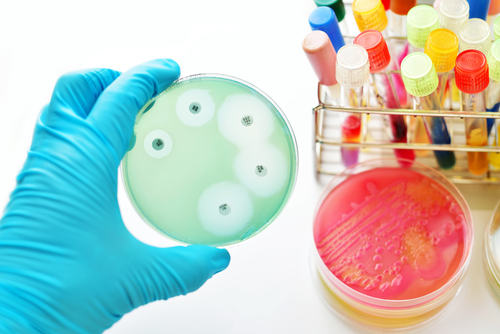Pharma industry links to rising antimicrobial resistance levels
ANI Feb 07, 2018
Turns out, India’s pharmaceutical industry is contributing to rising antimicrobial resistance (AMR) levels due to their polluters - air, soil and water.

It is found that exposure to these polluters are aiding the development of AMR in population at large. India’s pharmaceutical industry is one of the fastest growing segments of the Indian economy. It has played a ground-breaking role in making accessible worldwide, a plethora of affordable medicines. Pharmaceutical manufacturing uses large quantities of highly toxic solvents and heavy metals, with severe long-term environmental and human implications.
In fact, India’s Environment Ministry classifies pharmaceutical manufacturing as a “red category” activity owing to its hazardous waste production and subsequent environmental damage. One of the dangers of pharmaceutical effluents is the rapid spread of antimicrobial resistance.
Multiple studies have explored the impacts of pollution from pharmaceutical production sites and supply chains. Nordea, a financial services group in the Nordic and Baltic region, made a field trip to Hyderabad and Vishakhapatnam, India in 2015, where they found “disturbing evidence of poor wastewater management related to pharmaceutical manufacturing”.
Hyderabad accounts for nearly a fifth of India’s pharmaceutical exports and the Patancheru-Bollaram manufacturing hub on the outskirts of Hyderabad is one of the most polluted industrial areas in India. One of the world’s largest “bulk drug” manufacturing hubs, Hyderabad, is also one of the state’s biggest polluters of air, soil and water. Nordea’s researchers found that the common waterways contained extremely high levels of chemicals, which resulted in strange illnesses amongst local people.
According to latest reports, decades of campaigning by local and international NGOs alongside successful legal challenges in Indian courts has not led to curbing of emissions. Pharmaceutical pollution is still rife in Hyderabad, affecting ecosystems and human lives, as companies continue to discharge untreated or inappropriately treated wastewater into the environment.
Local and national authorities are failing to control the situation, in the absence of credible regulation and measures. Hyderabad already supplies medicines to markets across the European Union and United States annually and furthermore, plans are afoot to expand Hyderabad’s pharmaceutical production capacity in the coming years.
Jayasree K. Iyer, Executive Director of Access to Medicine Foundation says “The need to manufacture and market antibiotics responsibly led the Access to Medicine Foundation to launch the AMR Benchmark report at the World Economic Forum in Davos. This is the first time that an independent and detailed evaluation has been undertaken to determine how individual pharmaceutical companies, including seven Indian ones, are curbing rising levels of AMR.
In our research, we see that pharmaceutical companies are taking positive steps to control AMR. We found that eight of the companies we evaluated have a strategy to manufacture antibiotics responsibly, with a core group taking the lead by requiring their suppliers to also stick to the standards set”.
According to Dr. Rajeshwari Sinha, Programme Officer, Food Safety and Toxins Programme “A lot of companies have voluntarily employed different types of effluent treatment techniques based on the volume of waste discharge or the company’s size. While small manufacturers may not be able to afford these, medium-scale manufacturers make investments in advanced tertiary treatment processes or Zero Liquid Discharge (ZLD) plants. But, these are often not operational. The need to set standards for zero or no antibiotic residues in pharmaceutical effluents cannot be reiterated strongly enough”.
Hence, the issues of lax regulations, implementation and accountability/transparency need to be addressed in order to successfully tackle complex pharmaceutical supply chain impacts. This demands compliance of India’s pharmaceutical industry as a whole with international regulations and standards.
-
Exclusive Write-ups & Webinars by KOLs
-
Daily Quiz by specialty
-
Paid Market Research Surveys
-
Case discussions, News & Journals' summaries